electron
Latest
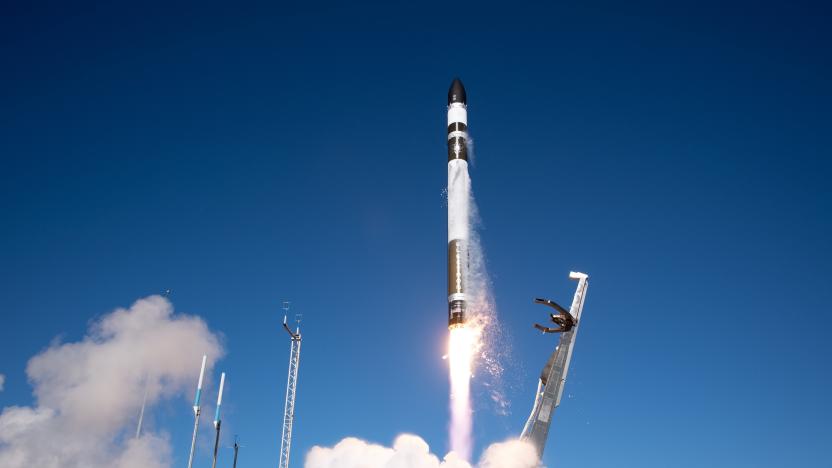
Rocket Lab will try to snatch a rocket out of mid-air with a helicopter
The ambitious mission, happening this month, is part of a plan to develop a reusable orbital launch vehicle.
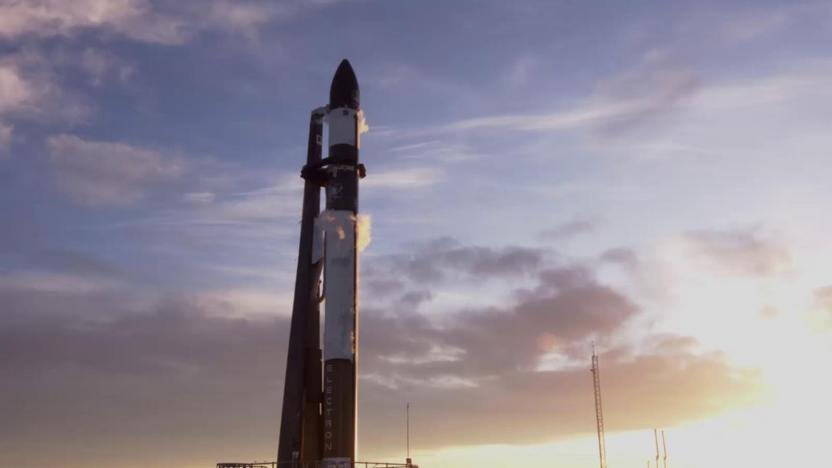
Rocket Lab will launch its first Moon mission from New Zealand in late 2021
Rocket Lab has revealed that its first Moon mission, CAPSTONE, will launch from New Zealand near the end of 2021.
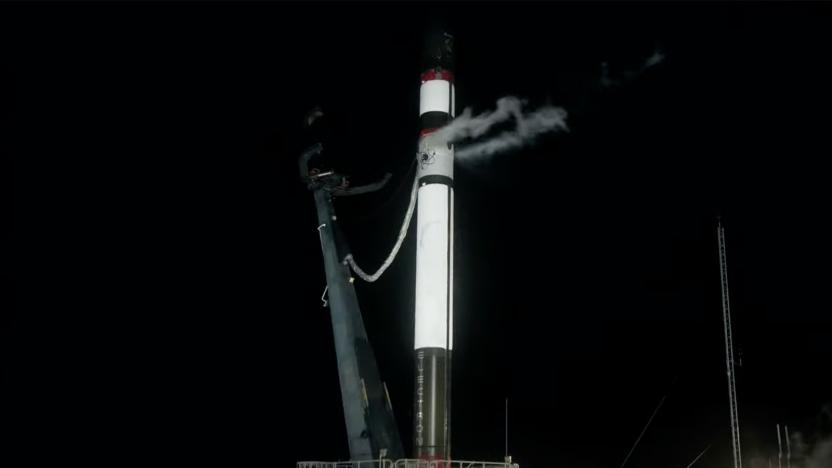
Rocket Lab's 20th Electron mission ends with second stage failure
Rocket Lab's 20th Electron mission has ended in failure after the second stage abruptly stopped working.

Rocket Lab's next reusable rocket mission will test a new heat shield
Rocket Lab hopes to validate its previous findings and test a new heat shield the company designed to protect Electron from temperatures as hot as 4,352 degrees Fahrenheit.

Rocket Lab's Electron rocket makes a successful return to flight
Rocket Lab has made a successful return to flight following a failure last month. The company’s Electron rocket launched a 100 kg (220 pound) Earth observation satellite from its facility on the Mahia Peninsula in New Zealand at 11:05 PM EDT on August 30th. That marks the first flight since the company’s failed launch on July 4th, when it lost seven satellites including one from Canon.

Rocket Lab will resume launches no sooner than August 27th
Rocket Lab has revealed that it will resume launches as soon as August 27th.
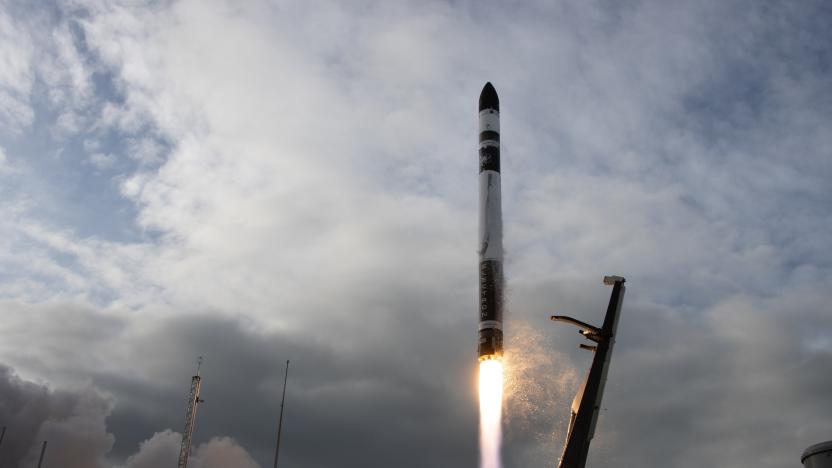
Rocket Lab will resume missions in August following launch failure
Rocket Lab’s Electron vehicle will resume ferrying satellites and other payloads to space this month. In early July, Rocket Lab’s “Pics Or It Didn’t Happen” mission resulted in the loss of both the rocket and its satellite payloads, including a Canon satellite that was supposed to demonstrate an Earth imaging camera system before it enters mass production. The company launched an investigation with the FAA and managed to pinpoint the culprit: an anomalous electrical connection.

Rocket Lab mission fails shortly after launch
Rocket Lab's 13th mission ended in failure when the vehicle had an 'anomaly' during its second-stage burn.
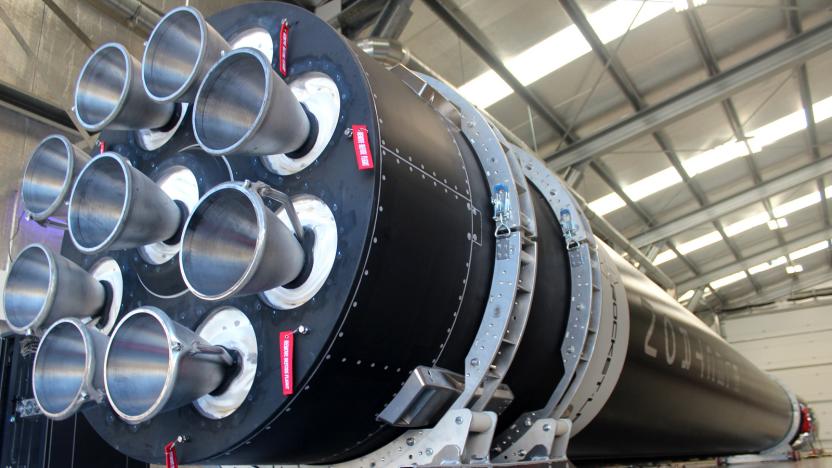
Watch Rocket Lab launch a Canon satellite into space at 5:19PM ET
Rocket Lab is launching a Canon satellite and other payloads into orbit at 5:19PM Eastern, and you can watch the mission as it happens.
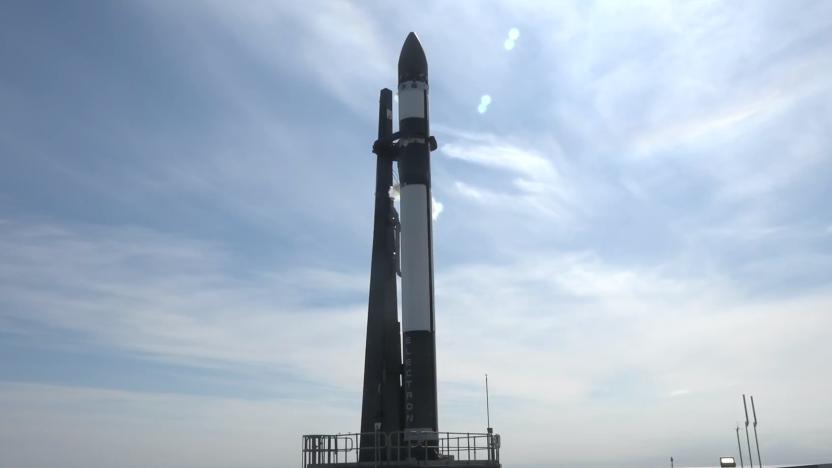
Rocket Lab proves it can recover a rocket in mid-air
Last year, Rocket Lab announced that it would attempt to reuse the first stage of its Electron rocket. Rocket Lab pulled off this stunt in early March. One helicopter dropped the Electron test stage over open ocean in New Zealand.

Rocket Lab will launch a NASA cubesat to the Moon
Rocket Lab will fulfill its dreams of launching payloads to the Moon. NASA has picked Rocket Lab to carry its CAPSTONE (Cislunar Autonomous Positioning System Technology Operations and Navigation Experiment) cubesat into the Moon's orbit in early 2021. An Electron rocket will launch from NASA's Wallops facility in Virginia, with the Photon platform sending CAPSTONE into a trans-lunar injection. The cubesat will only handle the last stage, when it propels itself into a cislunar orbit.

X-ray lasers can spot elusive electron motion
Scientists can track the movements of an atom's nucleus relatively easily, but electrons have proven elusive -- they move so fast that they tend to be reduced to blurs. Now, however, those movements could be crystal clear. Researchers at the SLAC National Accelerator Lab have developed a technique, X-ray laser-enhanced attosecond pulse generation (XLEAP), that can observe even the fastest motions of electrons. The laser pulses at just 280 attoseconds, or billionths of a billionth of a second, and can create snapshots of electrons to track their progress. The trick was to modify the laser in a way that squeezed electrons into tighter groups, making for shorter X-ray bursts.

Rocket Lab plans to send payloads to the Moon
Rocket Lab has been increasing the altitude of its missions in recent months, but now it wants to venture much, much farther. The private spaceflight firm now intends to help launch missions to higher Earth orbits, lunar orbit and even Lagrange points. It'll use a combination of Electron rockets, the Photon payload platform and a "dedicated bulk maneuver stage" to provide the new capabilities as soon as the fourth quarter of 2020.

Rocket Lab will reuse its rockets by catching them with a helicopter
SpaceX won't be the only company reusing its rockets for payload deliveries. Rocket Lab has unveiled plans to recover the first stage of its Electron vehicle. The strategy's first phase will have Rocket Lab recovering the stage from the ocean and refurbishing it for later. A second phase will be more... audacious. The company intends to have the stage "captured mid-air" by a helicopter, with the aircraft hooking on to the rocket's parachute array during the descent. It won't be as elegant as SpaceX's rocket landings, but it will be efficient if it works as planned.

Rocket Lab launches NASA's first dedicated cubesat mission
Rocket Lab isn't quite done establishing firsts. The company has successfully launched ElaNa-19 (Educational Launch of Nanosatellites), NASA's first cubesat mission to get a dedicated ride to space. Until now, the agency's tiny satellites have piggybacked on missions carrying larger payloads. It's also the first Venture Class Launch Services mission for the company, and the first time Rocket Lab has conducted two launches that are relatively close together. Its initial commercial flight, "It's Business Time," lifted off five weeks ago.
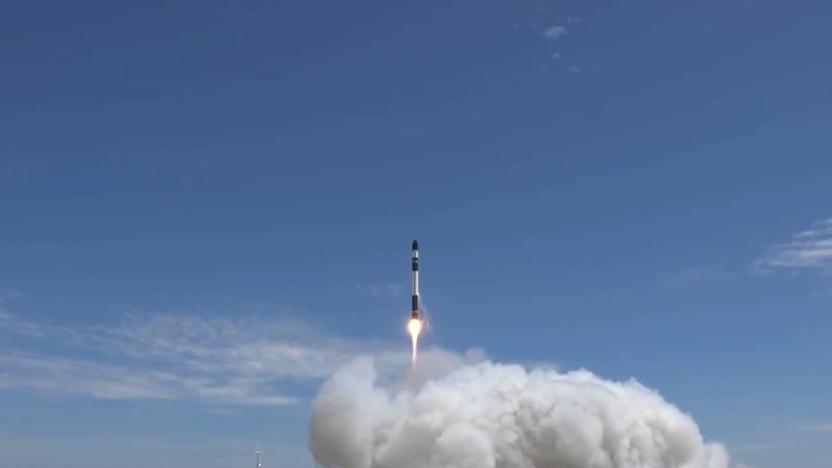
Rocket Lab completes its first commercial launch
After months of delays, Rocket Lab has completed its first commercial mission. The spaceflight startup successfully launched its Electron rocket into orbit carrying six small satellites, including five cubesats as well as a small weather satellite. The vessel also carried a payload that stuck to the upper stage to help test deorbiting technology.

World's quickest laser pulse can track electrons in slow motion
The race to produce ever-faster laser pulses has set a new record, and it could lead to breakthroughs in our understanding of atom-level physics. A team at ETH Zurich has shortened an X-ray pulse to just 43 attoseconds (10-18 seconds), which is quick enough that you can observe electrons moving in slow motion. That, in turn, makes it realistic to study extremely fast processes, such as the formation of chemical bonds or the creation of electricity in solar cells.

Rocket Lab is almost ready to take small payloads into space
Rocket Lab is ready to start testing the rocket it developed to ferry small payloads to space. The US- and New Zealand-based company has decided to launch its Electron rocket anytime within a 10-day window that starts at 5PM Eastern on May 21st. It will be the first time a space vehicle will take off from a private launch facility, which the company built on the Mahia peninsula in New Zealand. As with any launch, the exact time all depends on the weather and rocket's condition.

Australians researchers have built a better qubit
Qubits, the unit of information used by quantum computers, make use of a phenomenon known as "superposition" wherein they can exist in two separate quantum states simultaneously. Theoretically, they'd enable computers to perform a variety of tasks far faster than conventional desktops by performing simultaneous computations in parallel. The problem is that qubits tend to be very unstable which prevents the information the contain from being read. However, a team of researchers from the University of New South Wales (UNSW) in Australia may have finally tamed the elusive qubit. They've coerced one into remaining stable for ten times as long as normal qubits.

Particle's Electron board lets anyone make 3G internet devices
As sweet as it might be to dream of making your own Internet of Things device, there's one big problem: keeping it online at all times. How do you connect that smart sensor in your backyard when it's nowhere near WiFi? Particle (aka Spark) thinks it can help. It just started shipping the Electron, its cellular-equipped tinkerer's board, to its Kickstarter backers. The tiny device not only has the basic components you need to make IoT gadgets, but a modem (a 2G Electron is $39, 3G is $59) and a simplified, if slightly costly, data plan. If you're willing to spend $3 per month for 1MB and 99 cents for every megabyte afterwards, your project gets online in 100 countries around the world -- not trivial, but just fine if you're building a meter or anything else that transmits only a tiny amount of data.






